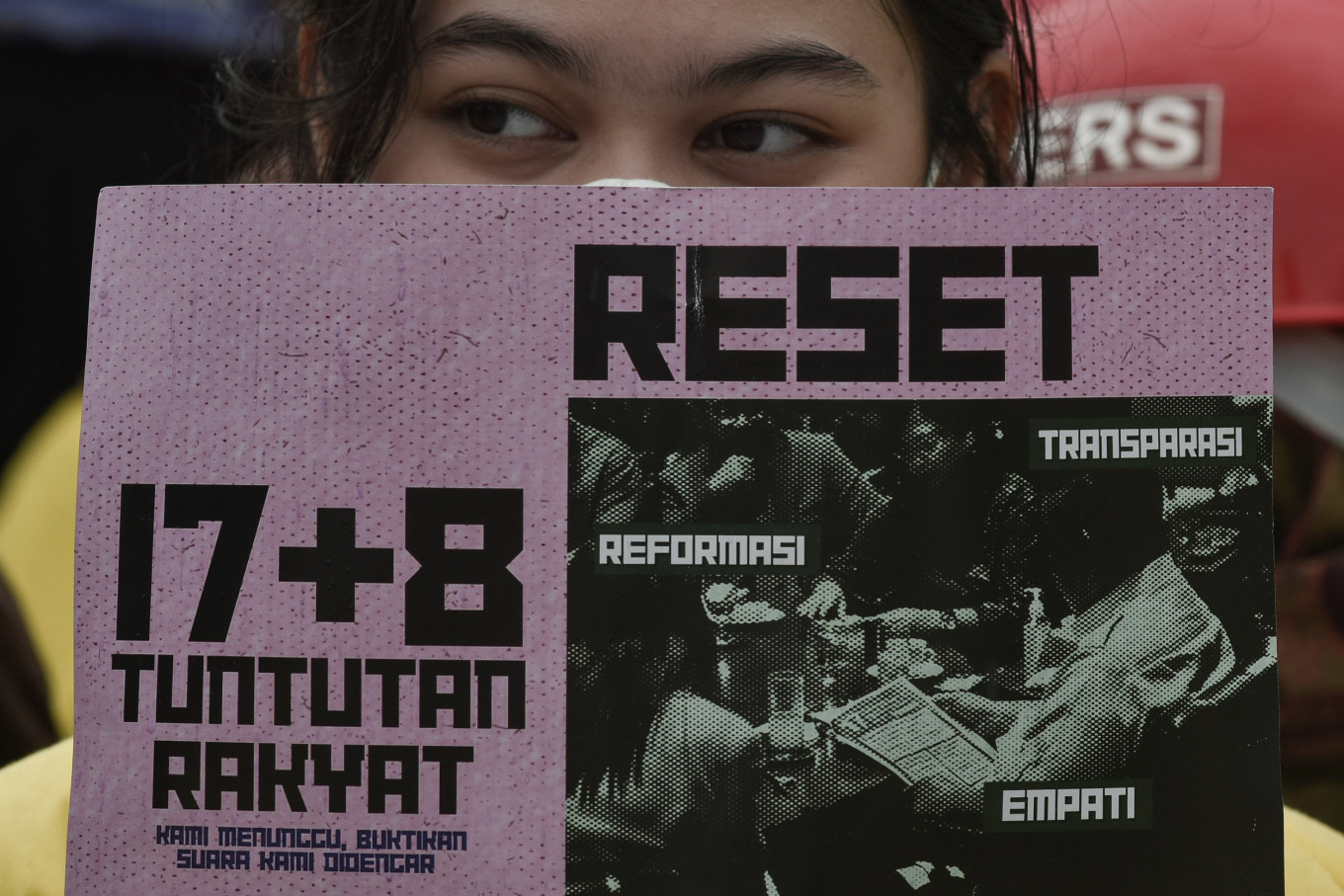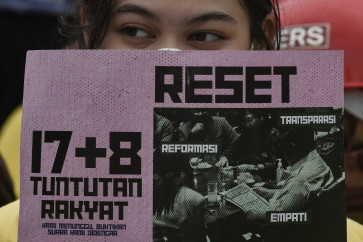Popular Reads
Top Results
Can't find what you're looking for?
View all search resultsPopular Reads
Top Results
Can't find what you're looking for?
View all search resultsCareful, Mr. President: The world is watching
Our system calls itself democratic yet remains deeply uneasy, even hostile, toward opposition.
Change text size
Gift Premium Articles
to Anyone
S
irojuddin Arif’s analysis in Indonesia needs a new approach to fighting inequality published in The Jakarta Post on Sept. 9 is correct in highlighting economic inequality as the fuel of the recent protests. The gap between the elite and ordinary citizens has become increasingly visible, even amid steady economic growth. It is little wonder that inequality has become the driving force behind the expanding wave of demonstrations.
Yet there is another factor worth examining: the reason why the protests persisted for more than a week and spread across major cities. That factor is the absence of an effective opposition – the very mechanism that should serve as a democratic check. Levitsky and Way in 2010 described this as competitive authoritarianism: regimes that maintain the formal trappings of democracy – elections, parties, legislatures – while systematically weakening opposition and accountability, rendering them effectively authoritarian in practice.
In such a system, political parties exist, legislatures operate, but they act more as the government’s extension than as representatives of the people. Criticism, which should be guaranteed in a democracy, is treated as a threat. This, too, appears to be the case in Indonesia. We no longer have a meaningful opposition. This is the paradox of our politics: a system that calls itself democratic yet remains deeply uneasy, even hostile, toward opposition. As a result, citizens lose formal channels to voice their grievances, leaving the streets the only space left for articulation.
Without opposition, the government is no longer accustomed to scrutiny or debate. Policies are treated as absolute consensus rather than products of negotiation. Thus, when the protests erupted, instead of addressing the root causes, the government resorted to a series of blunders: blaming “foreign actors” and “paid protesters,” while lawmakers chose to flee abroad rather than face their constituents. Such responses did not calm the situation; they poured fuel on the fire. Citizens felt belittled, as though their voices carried no legitimacy.
The government did move quickly to cut back some of the House of Representatives’ excessive allowances and reshuffled several officials seen as triggers of public anger. Yet these measures remain cosmetic. The root of economic injustice has not been touched. The administration continues programs with unclear direction and benefits, such as the free nutritious meal program, the costly Nusantara new capital project and other prestige-driven ventures far removed from people’s urgent needs. Fundamental issues – fiscal reform, equitable distribution and fair law enforcement – remain unaddressed.
In short, the government’s response so far is superficial. The core of public grievances remains intact. And as long as these structural injustices are left unresolved, public unrest will persist. This unrest will not only destabilize the country internally but also erode Indonesia’s standing abroad.
The protests shaking Indonesia are no longer seen as a purely domestic matter. The world is paying attention. Even Nepal’s Gen-Z activists cited Indonesia’s protests as inspiration for their own mobilization last week. This underscores a crucial point: Indonesia’s internal political crisis is now being observed across borders, and the government’s response will shape how the country is perceived internationally. If protests are seen as rooted in ignored injustice, Indonesia’s reputation as a democracy will inevitably suffer.



















